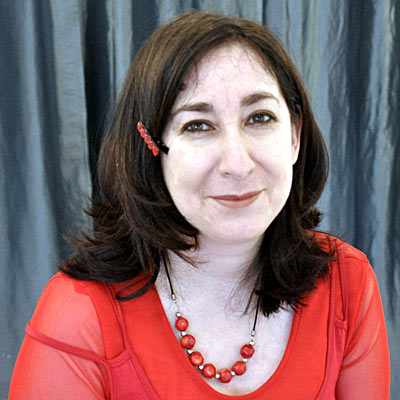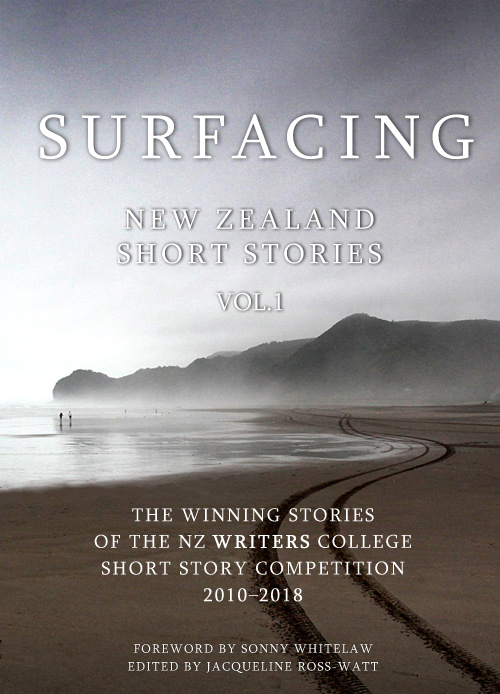THE NZ WRITERS COLLEGE
2020 Annual Short Story Competition
For Emerging Writers in New Zealand
THE WINNERS
We are delighted to announce our winners for
the 2020 NZ Writers College Short Story Competition.
The winning stories were original, quirky, authentic and complex, with a strong sense of place. Each was a thoughtful interpretation of this year’s theme: ‘What We Took for Granted’.
Congratulations on a superb effort.
FIRST PLACE:
‘Drainpipe’ – by Akshata Rao
RUNNER-UP:
‘let it be. waiho’ – by Christopher Reed
THIRD PLACE:
‘Paper Planes’– by Hannah Woolhouse
In fourth place is ‘Near Death Valley’, written by Belinda Marshall.
Read the judges’ comments, as well as the top three stories, below the Highest Honours, Honours, Honourable Mention and ‘More Stories We Loved’ results lists.
HIGHEST HONOURS
These stories narrowly missed inclusion in the top four.
The characters were authentic and memorable. Plotlines were generally plausible, interesting and unpredictable, and the manuscripts were polished.
In no particular order:
‘Memories Linger’ – by Angela Wu
‘Cafe Crème’ – by Natalie Allen
‘The Jar’ – by Christopher Keane
‘Looking Glass’ – by R L Jeffs
‘I Didn’t Think It’d Come to This’ – by Leticia Alvarez
‘You is Not the First Person’ – by Maree Black
‘Delete’ – by Jan Pryor
‘Mixed Tape’ – by Travis Inglis
‘Seize Your Day’ – by Donna Broadhurst
‘Loop’ – by Lisa McKenzie
‘Privacy’ – by Robin J Nelson
‘The Sky is No Longer Blue’ – by Yvonne Wang
HONOURS
Good storytelling and enjoyable reading. Some good imagery and description in places. For the most part, the writing is not forced or contrived.
In no particular order:
‘A Forgotten Pair’ – by Richard Goodson
‘The Vanquished Man’ – by Jasmine Caukwell
‘Life Was Better When It Was Worse’ – by Matthew Wearn
‘A Tapestry of Memories’ – by A D Anderson
‘Blue Eyes’ – by Beryl Mouldey
‘Girls’ Weekend’ – by Emma Harris
‘b r o k e n’ – by Frances Turner
‘The Turning Point’ – by Jane Tingey,
‘Baby Meat’ – by Jared Humm
‘658 Hours’ – by Patrice McCoy
‘You’re the Only Reason I Came to this Party’ – by Anthony Pita
‘Wreckage’ – by Jess Hautler
‘Mum Calling’ – by Joseph Curran
‘Early Starts’ – by Connie Buchanan
‘The Lockdown Payout’ – By Tavish Fraser
‘The End’ – by Tracy Solea
‘The Reopening’ – by Rachael Riley
‘Those I Like Best’ – by Emma Taylor
‘The Birds That Never Got On, Until…’ – by Frances Rush
‘Transient Heroes’ – by Polly Dacre
‘Mr Jensen’s Troubles’ – by Tom Galloway
‘Johnny Boy’ – by Scott Butler
‘Existing Under an Exploding Sun’ – by Shan Gibson
‘One Foot in the Grave’ – by Jason Morgan
HONOURABLE MENTION
Great writing is about attention to detail, creating characters and plot that are original and bold. Next year we’d like to see these authors move up the results ladder.
In no particular order:
‘I Was Blind, But Now I See’– by Joe O’Connor
‘Big Baby’ – by Rosalie Pedersen
‘The Visit’ – by Christine Gore
‘Luxury Melancholy’ – by Amanda McNite
‘Aroha on a Sunday’ – by Abby Shieh
‘We Think It’s a Drought – by Alex Bush
‘When the Storm Passes’ – by Zella Downing
‘Looking Back’ – by Paul Terpstra
‘Tulips’ – by Tiffany Allan
‘Listening to Middlemarch’ – by Helen Jackson
‘Paradise’ – by Tom Ballantyne
‘Dusty Promises’ – by Aimee Parkyn
‘Driven’ – by Hazlito
‘Field Trip 1988’ – by Juliet Slattery
‘Cat Burglar’ – by Sarah Bailey
‘Brave Felix’ – by Cory Beale
‘Those Were the Days’ – by Katharine Shelley Kirton
‘Shipwreck’ – by Glenn Erik Johannessen
‘Dream State’ – by Emma Norman
‘Bitter’ – by D. K. Marlowe
MORE STORIES WE LOVED
In no particular order:
‘Igor’s Silence’ – by Claudia Bolz
‘Mum’s Gone’ – by Matthew Armstrong
‘The Choice’ – by Sian Jones
‘A Consortium of Cryptids’ – by Ellery McNaughton
‘Reverse–Vampire’ – by Rory Nelson Moores
‘Welcome, Mrs Sole’ – by Giselle Simoes
‘Those who wait’ – by Alice Pearce
‘You’ – by Nicki White
‘In the Deep’ – by Tayla Marie Robertson
‘Bleeding Love’ – by Ros Lo
‘You’re Like Family to Us’ – by Sue Roughton
‘Laura, Are Ye In…?’ – by Loretta Egan
‘A Routine Moment’ – by Adrienne Huia
‘The Fabulous Life of Writers…’ – by Dinja Hoitink
‘Stale Bread’ – by Malachi Mackey
‘Not Okay’ – by Hugh McGarvey
‘Being Free’ – by Luka Brand
‘Mr Bishop Pulls Backward’ – by Noel Suckling
Keep up the great writing! We look forward to hearing from you again for our 2021 NZ Writers College Short Story Competition.
The judges’ ratings and comments for the top three stories
A huge thank you to our judges this year: Sonny Whitelaw, Philippa Werry, Arja Salafranca and Gareth Ward.
First Place
'Drainpipe'
by Akshata Rao
Judges’ comments
- Like all good speculative fiction, this is a wonderfully original take on a contemporary socio-economic problem: the impact of the lockdown. The reader instantly understands the character’s situation and his desperation. I particularly liked how you artfully exposed the role of social media; co-opting the problems of others to fit the ‘normal’ abnormal. The story felt a little disjointed in the kitchen scene with his mother; I don’t think you needed to establish his relationship with her in a commonplace domestic setting, or ‘hang the gun on the wall’ by foreshadowing the knife. It doesn’t feel necessary, as you did such a good job of establishing the everyday commonplace nature of the setting and his unique needs. Aside from that, a great story. Sonny
- There was some nice imagery and foreshadowing in this story and an original take on the effects of lockdown. I felt cheated that we didn’t get into the mortuary after it seemed to be set up for this to occur. It felt a little anticlimactic. The ending did appeal to my dark soul. Gareth
- The narrator of the story is clearly a vampire, although this is never overtly expressed. But it is clear from the narration — so kudos to the writer for not telling it, but showing this through the details of the story. However, except for the narrator’s thirst for blood, I know nothing about him/her. I don’t even know their sex. It feels like it’s a male narrator, however. The ending was grisly, taking his mother’s blood, as though the narrator was committing incest. But I needed more characterisation to make me care about the narrator. Arja
- (Readability) Growing desperation and sense of creepiness both add to increased tension. The scene with the knife, tomato and potato raised hairs on the back of my neck, as much for what it didn’t say as for what it did. Other events are threatening but unexplained, e.g. the smash of glass – I guessed someone had thrown a stone though a window? The pace doesn’t let up except for the pause in the middle suspended on the outside of the building.
(Originality) Clever use of the effects of the coronavirus in a vampire story – even though the virus is never named, it is hinted at in the lack of fresh kill because of closed bars and fewer drunk late night partygoers and because of the worry that his physiology can’t withstand it. Even the neighbours glutting themselves on Uber Eats and the twitter comments are clever ways to hint at COVID-19.
(Flow) Time is an important part of the story, especially the move from daylight to night. Good pacing of letting clues fall (I particularly liked using the ladle to push open the window). The scene with the man on the street is largely silent, apart from ‘You alright?’; I wondered if the man would speak or yell in surprise or anger, when he is attacked, or attacking. When he gets back home, after the kicking, there’s no sense that he’s in pain, bruised or injured.
(Characterisation) The relationship between him and his mother is well drawn – his mix of care of and contempt for her – and comes to a shocking end. Things that are hinted at between them but not spelt out (e.g. the mother’s reaction to putting the knife in the pan) show how well they understand each other. Reading the last chapter of her book aloud to her is an ominous hint that something bad is about to happen. (Not sure why I assume the narrator is a man, it could be a woman – but maybe the man kicking him on the pavement wouldn’t have kicked a woman?)
(Imagery and use of language) There’s less sense or mention of the darkness as there is of the sunshine earlier, e.g. ‘I pull my cap low and walk down the driveway, sticking under the trees in case someone’s looking out from a nearby balcony.’ Someone on a balcony would be looking out into the dark, so keeping away from streetlights would be more important, or sticking to the darker shadows.
(Gut response) I took the title to mean something unreachable, or unworkable, like being able to find others like him; the difficulties of his life? A satisfyingly creepy story. Philippa
The Runner-up
'let it be. waiho.'
by Christopher Reed
Judges’ comments
- An elegant and powerful story of self-discovery. You captured perfectly the awkward social rituals of funerals and the hint of something unexpected. The story flowed along an expected path; the outcome predictable. But it’s the very predictability that enabled you to explore the quiet depth of emotions on that quest to find the truth. The strength of this story is in its simplicity and honesty, and its imagery and language. It’s been a very long time since a story moved me to tears. You achieved that with this line: ‘Nau mai haere mai young fella, you’re home.’ Well done. Sonny
- A well written account of someone discovering their history, but for me it didn’t feel like there was enough of a story here. Gareth
- I really couldn’t ‘see’ this story. There wasn’t much description of the narrator. I liked the use of second person point of view though, and it is not always easy to pull off. But the story itself was hidden for me behind the telling of it. I wasn’t very gripped or intrigued. I also was confused by the repetition of ‘waiho’. A story should speak for itself though, and a reader shouldn’t have to look up something like this, it should be explained in the telling. So, for all these reasons, this was my least favourite. Arja
- (Readability) The first paragraph packs in a lot of info but without being overwhelming. The funeral scene which takes up the first half of the story is a great mix of internal thought and external conversation – and gets across that bizarre mixture of grief and politeness and awkwardness that often makes up a funeral. The search for the marae which takes place a year later is different but connected.
(Originality) The way that the story is told (2nd person), the dialogue and the self-deprecating tone all gave this story an original feel.
(Flow) I wasn’t sure why this marae, the last one he visited, was such a long shot. We hear that the marae sits on the edge of the moana, the ocean, but don’t get any sense of the sea itself, or the landscape or the small towns, or the weather, or any other interactions he has with people before he reaches the final marae.
(Characterisation) I would have liked to a few more details to colour in the characters who are mostly nameless; his pregnant wife doesn’t appear, we don’t learn her or his sister’s names, or the names of his kids. But having said that, the dialogue – both internal and external is well handled throughout, and gives us a sense of people meeting and relating to each other, whether in a superficial way as often at a funeral or at the marae at the end.
(Imagery and use of language) Telling a story in 2nd person can be tricky but this works well. The repetition of waiho at the end of almost every paragraph is lyrical and almost hypnotic; I like the way the meaning of the word isn’t given, except in the title. I also liked the sense of funeral conversations in the repeated condolences (“At least it was quick.”, “He wouldn’t have suffered.” ) and the way that these turn into a lovely and moving ending (“You’ll miss him.” You nod.)
(Gut response) I liked the two-part pattern to the story, and the convincing sense of the odd mixture of emotions at the funeral. Philippa
Third Place
'Paper Planes'
by Hannah Woolhouse
Judges’ comments
- A great opening line and a compelling opening scene that sets up the characterisations beautifully. The rendering of the relationships between the characters is excellent and imagery and language is also very good. I can see why you have structured the flow as you have, but it is hard to follow in places, seemingly contradictory in places. This is in part due to incorrect verb tenses: events/emotions in the past are muddled with the present, so it is not clear when Michael really learned of his stepsister. The connective tissue between what’s going on in Michael’s head and events that need to be conveyed to the reader, is missing in some key pieces, making the story a little confusing. That threw me from the story. Several readings of this and I’m still not clear on some aspects that build to the outcome, and how that segues with the fantastic opening line. Sonny
- A great opening line. I liked much of the writing such as ‘after recognising a bitterness in my voice I’d only ever heard in hers. ‘ I did find myself lost at times as to where we were with a lack of scene setting. I wonder if the ending would have been more powerful if Michael hadn’t read the letter before Megan launched the paper plane off of the cliff. Gareth
- I found this story a bit vague and ambiguous. Did the half-sister Megan know the mother in the last months (years?) of her life? Megan seemed more fully developed than Michael, the narrator of the story. He was very undeveloped — you only see him in relation to the toxic relationship he had with his mother. I struggled to make sense of the story because of all this. It wasn’t my favourite story, and I thought more could have been done with the elements of the story, and to make the story more gripping, more developed. Arja
- (Readability) Time shifts are handled well, the story reads very smoothly despite the way it jumps about in time. The surprise of M not = Michael makes us want to know more. Michael’s introspective thoughts get a bit repetitive but the final scene is a good and satisfying ending.
(Originality) The premise of only finding out about a half sibling at a funeral is a good one, but I felt there was too much stilted conversation – less would have given the same impression, and allowed more space to find out more about the family situation and Megan and why nobody else knew about her, and why the mother went ahead with the pregnancy if she (supposedly) hated children.
(Flow) Opening sentence is attention-grabbing but afterwards I felt it didn’t quite make sense, because it wasn’t meant to be his inheritance anyway; also it’ s only a few hundred dollars cash – hardly enough to make a big deal of. Megan remembered seeing him once when she was 13; did he have any memory of that?
(Characterisation) The mother is a strong character (even tho’ dead!); her presence or absence dominates every scene. Very powerful evocation of how her disapproval has shaped his life. But nobody is 100% unpleasant. I wondered if there were good things about her too. The father is only briefly mentioned but in a way that clearly describes his relationship with his wife through the objects in the room. We don’t learn much about Megan except for her wide eyes and a choppy fringe, but she is more confident and self-assured than Michael, e.g. changing the time of their appointment, and suggesting they move elsewhere.
(Imagery and use of language) Some great similes. Phrases like M written in chicken-scratch on the front, black ice in a mouth that wasn’t my own, and the metaphors of scars and shrapnel, are also effective use of language. A few typos and/or repetitions (a chipped, silver nail and a chipper, silver nail)
(Gut response) There were a lot of things I liked: the language, the “lost half sibling” premise, but Michael came across as just a bit wimpy, and I wanted to know more about Megan! Some of the dialogue felt as if it needed to be tightened up and/or expanded, too many short speeches that add to the length but don’t add much to the story – the initial conversation between Michael and Megan in the cafe didn’t convince me, altho’ I can see it’s meant to be an awkward encounter. A lot of telling rather than letting us sense things for ourselves (waiting for an answer, The reason I was here, I wondered if Megan felt the same way.) But I did like the symbolism of the ending. Philippa
PRIZES:
- First Prize: $ 1 000.00 and publication in an anthology of winning stories
- Second Prize: $ 500.00 and publication in an anthology of winning stories
- Third Prize: $ 250.00
THE JUDGES:

Sonny Whitelaw

Arja Salafranca
She has published three collections of poetry, A Life Stripped of Illusions, which received the Sanlam Award for poetry and The Fire in Which We Burn. Her third poetry collection is Beyond Touch (Modjaji Books/Dye Hard Press 2015), a co-winner in the poetry category of the South African Literary Awards in 2016. Her fiction has been published in local and international journals and anthologies, as well as online. Her debut collection of short fiction, The Thin Line, was published in 2010 (Modjaji Books) and short-listed for the Wole Soyinka Award. She has also edited two anthologies, Glass Jars Among Trees and The Edge of Things.
She holds an MA in Creative Writing from Wits University.

Gareth Ward
Born in the town of Banbury in the UK, he attended the University of York where he gained a joint honours degree in Biology and Computer Science. If you want your cat reprogrammed, he’s your man. He currently resides in Hawke’s Bay, New Zealand where he runs two independent bookshops, Wardini Books and Wardini Books Napier with his wife Louise. He has a goldfish called Luna, a dog called Tonks and is certain his letter from Hogwarts has been lost in the post.
His first novel, The Traitor and the Thief, a rip-roaring young adult Steampunk adventure, won the 2016 Storylines Tessa Duder Award, the 2018 Sir Julius Vogel Award for Best Youth Novel, a 2018 Storylines Notable Book Award and was a finalist in two categories at The New Zealand Book Awards for Children and Young Adults. He is also the author of the award-winning The Clockill and the Thief.
His books are available from bookshops in New Zealand and Australia, at the links below and from the usual online behemoths.

Philippa Werry
Past Winners of the NZ Writers College Short Story Competition
We would like to acknowledge the past winners of our Short Story Competitions.
2020
First Place: ‘Drainpipe’ by Akshata Rao
Runner-up: ‘let it be. waiho’ by Christopher Reed
Third place: ‘Paper Planes’ by Hannah Woolhouse
2019
First Place: ‘Meat’ by Nicky Taylor
Runner-up: ‘The Long White Cloud’ by Toakahu Pere
Third place: ‘Truth-Telling’ by Nicola Bentley
2018
First Place: ‘Crabs’ by Moira Lomas
Runner-up: ‘Golden’ by R. L. Jeffs
Third place: ‘Thunderstorm’ by Mary Francis
2017
First Place: ‘White Boy Wonder’ by Victoria Louise Lawrence
Runner-up: ‘The Hole’ by Regan Drew Barsdell
Third place: ‘Alan Matsumoto’ by Paul M. Clark
2016
First Place: ‘Till Death Do Us Part’ by Suzanne Main
Runner-up: ‘Moving Patterns’ by Nicholas Buck
Third place: ‘A Handful of Dust’ by Madeline Dew
2015
First Place: ‘Aroha’ by Jeff Taylor
Runner-up: ‘Out to Sea’ by James MacTaggart
Third place: ‘Contractual Remedies’ by Barnaby McIntosh
2014
First Place: ‘Norman’s Letter’ by Lizzie Nelson
Runner-up: ‘Being a Ghost’ by Abby Jackson
Third place: ‘Other People’s Lives’ by Ruth L. Jeffs
2013
First Place: ‘The President, the Ski-Instructor and the Watermelon’ by Jade du Preez
Runner-up: ‘The Invisible Woman’ by Lizzie Nelson
Third place: ‘Not My Daughter’ by Monique Reymer
2012
First Place: ‘The Barrier’ by Timothy McGiven
Runner-up: ‘A Certain Hardness’ by Collin Minnaar
Third place: ‘Gravity’ by Andy Evans
2011
First Place: ‘Regrets’ by Aaron Ure
Runner-up: ‘The Effects of Cancellation’ by Sacha Norrie
Joint Third place: ‘Careless Driving’ by Stephanie Attwood, and ‘Milk and Two Sugars’ by David Hamilton
2010
First Place: ‘Tell Me About the Love of Your Life’ by Feby Idrus
Runner-up: ‘Expunge’ by John Drennan
Third place: ‘The Bridge’ by Tony Wi

